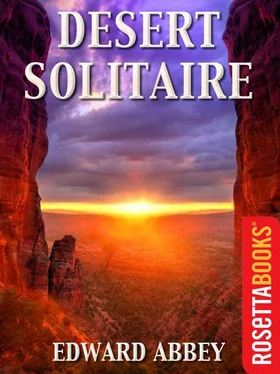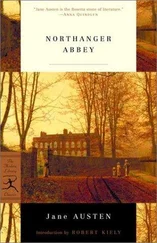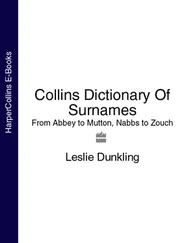Abbey, Edward - Desert Solitaire (Edward Abbey Series )
Здесь есть возможность читать онлайн «Abbey, Edward - Desert Solitaire (Edward Abbey Series )» — ознакомительный отрывок электронной книги совершенно бесплатно, а после прочтения отрывка купить полную версию. В некоторых случаях можно слушать аудио, скачать через торрент в формате fb2 и присутствует краткое содержание. Год выпуска: 2011, Издательство: RosettaBooks, Жанр: Старинная литература, на английском языке. Описание произведения, (предисловие) а так же отзывы посетителей доступны на портале библиотеки ЛибКат.
- Название:Desert Solitaire (Edward Abbey Series )
- Автор:
- Издательство:RosettaBooks
- Жанр:
- Год:2011
- ISBN:нет данных
- Рейтинг книги:4 / 5. Голосов: 1
-
Избранное:Добавить в избранное
- Отзывы:
-
Ваша оценка:
- 80
- 1
- 2
- 3
- 4
- 5
Desert Solitaire (Edward Abbey Series ): краткое содержание, описание и аннотация
Предлагаем к чтению аннотацию, описание, краткое содержание или предисловие (зависит от того, что написал сам автор книги «Desert Solitaire (Edward Abbey Series )»). Если вы не нашли необходимую информацию о книге — напишите в комментариях, мы постараемся отыскать её.
Desert Solitaire (Edward Abbey Series ) — читать онлайн ознакомительный отрывок
Ниже представлен текст книги, разбитый по страницам. Система сохранения места последней прочитанной страницы, позволяет с удобством читать онлайн бесплатно книгу «Desert Solitaire (Edward Abbey Series )», без необходимости каждый раз заново искать на чём Вы остановились. Поставьте закладку, и сможете в любой момент перейти на страницу, на которой закончили чтение.
Интервал:
Закладка:
At eight o’clock I put on badge and ranger hat and go to work, checking in at headquarters by radio and taking my post at the entrance station to greet and orient whatever tourists may appear. None show. After an hour of waiting I climb in the government pickup and begin a patrol of the park, taking lunch and coffee with me. So far as I know there’s no one camping in the park at this time, but it won’t hurt to make sure.
The wind is coming from the north, much colder than before—we may have sleet or rain or snow or possibly all three before nightfall. Bad weather means that the park entrance road will be impassable; it is part of my job to inform campers and visitors of this danger so that they will have a chance to get out before it’s too late.
Taking the Windows road first, I drive beneath the overhanging Balanced Rock, 3500 tons of seamless Entrada sandstone perched on a ridiculous, inadequate pedestal of the Carmel formation, soft and rotten stone eaten away by the wind, deformed by the weight above. One of these days that rock is going to fall—in ten, fifty, or five hundred years. I drive past more free-standing pinnacles, around the edge of outthrust ledges, in and out of the ravines that corrade the rolling terrain—wind-deposited, cross-bedded sand dunes laid down eons ago in the Mesozoic era and since compressed and petrified by overlying sediments. Everywhere the cliffrose is blooming, the yellow flowers shivering in the wind.
The heart-shaped prints of deer are plain in the dust of the road and I wonder where the deer are now and how they’re doing and if they’ve got enough to eat. Like the porcupine the deer too become victims of human meddling with the natural scheme of things—not enough coyotes around and the mountain lions close to extinction, the deer have multiplied like rabbits and are eating themselves out of house and home, which means that many each year are condemned to a slow death by starvation. The deerslayers come by the thousands every autumn out of Salt Lake and California to harvest, as they like to say, the surplus deer. But they are not adequate for the task.
The road ends at the Double Arch campground. No one here. I check the garbage can for trapped chipmunks, pick up a few bottlecaps, and inspect the “sanitary facilities,” where all appears to be in good order: roll of paper, can of lime, black widow spiders dangling in their usual strategic corners. On the inside of the door someone has written a cautionary note:
Attention: Watch out for rattlesnakes, coral snakes, whip snakes, vinegaroons, centipedes, millipedes, ticks, mites, black widows, cone-nosed kissing bugs, solpugids, tarantulas, horned toads, Gila monsters, red ants, fire ants, Jerusalem crickets, chinch bugs and Giant Hairy Desert Scorpions before being seated.
I walk out the foot trail to Double Arch and the Windows. The wind moans a dreary tune under the overhanging coves, among the holes in the rock, and through the dead pinyon pines. The sky is obscure and yellow but the air in this relatively sheltered place among the rocks is still clear. A few birds dart about: black-throated sparrows, the cliff swallows, squawking magpies in their handsome academic dress of black and white. In the dust and on the sand dunes I can read the passage of other creatures, from the big track of a buck to the tiny prints of birds, mice, lizards, and insects. Hopefully I look for sign of bobcat or coyote but find none.
We need more predators. The sheepmen complain, it is true, that the coyotes eat some of their lambs. This is true but do they eat enough? I mean, enough lambs to keep the coyotes sleek, healthy and well fed. That is my concern. As for the sacrifice of an occasional lamb, that seems to me a small price to pay for the support of the coyote population. The lambs, accustomed by tradition to their role, do not complain; and the sheepmen, who run their hooved locusts on the public lands and are heavily subsidized, most of them as hog-rich as they are pigheaded, can easily afford these trifling losses.
We need more coyotes, more mountain lions, more wolves and foxes and wildcats, more owls, hawks and eagles. The livestock interests and their hired mercenaries from the Predator Control Agency have pursued all of these animals with unremitting ferocity and astonishing cruelty for nearly a century, utilizing in this campaign of extermination everything from the gun and trap to the airplane and the most ingenious devices of chemical and biological warfare. Not content with shooting coyotes from airplanes and hunting lions with dogs, these bounty hunters, self-styled sportsmen, and government agents like to plant poisoned meat all over the landscape, distribute tons of poisoned tallow balls by air, and hide baited cyanide guns in the ground and brush—a threat to humans as well as animals. Still not satisfied, they have developed and begun to use a biochemical compound which makes sterile any animal foolish enough to take the bait.
Absorbed in these thoughts, wind in my eyes, I round a corner of the cliff and there’s a doe and her fawn not ten yards away, browsing on the cliffrose. Eating flowers. While she could not have heard or scented me, the doe sees me almost at once. But since I stopped abruptly and froze, she isn’t sure that I am dangerous. Puzzled and suspicious, she and the fawn at her side, madonna and child, stare at me for several long seconds. I breathe out, making the slightest of movements, and the doe springs up and away as if bounced from a trampoline, followed by the fawn. Their sharp hooves clatter on the rock.
“Come back here!” I shout. “I want to talk to you.”
But they’re not talking and in another moment have vanished into the wind. I could follow if I wanted to, track them down across the dunes and through the open parks of juniper and cliffrose. But why should I disturb them further? Even if I found them and somehow succeeded in demonstrating my friendship and good will, why should I lead them to believe that anything manlike can be trusted? That is no office for a friend.
I come to the North Window, a great opening fifty feet high in a wall of rock, through which I see the clouded sky and the hazy mountains and feel the funneled rush of the wind. I climb up to it, walk through—like an ant crawling through the eyesocket of a skull—and down the other side a half-mile to a little spring at the head of a seldom-visited canyon. I am out of the wind for a change, can light up my pipe and look around without getting dust in my eyes; I can hear myself think.
Here I find the track of a coyote superimposed on the path of many deer. So there is at least one remaining in the area, perhaps the same coyote I heard two weeks ago wailing at the evening moon. His trail comes down off the sandstone from the west, passes over the sand under a juniper and up to the seep of dark green water in its circle of reeds. Under the juniper he has left two gray-green droppings knitted together with rabbit hair. With fingertip I write my own signature in the sand to let him know, to tip him off; I take a drink of water and leave.
Down below is Salt Creek Canyon, corraded through an anticline to the bed of the Colorado. If I were lucky I might find the trail of bighorn sheep, rumored still to lurk in these rimrock hideaways. In all these years of prowling on foot through the canyons and desert mountains of the Southwest I have yet to see, free and alive in the wild, either a lion or a bighorn. In part I can blame only my ignorance and incompetence, for I know they are out there, somewhere; I have seen their scat and their tracks.
As I am returning to the campground and the truck I see a young cottontail jump from the brush, scamper across the trail and freeze under a second bush. The rabbit huddles there, panting, ears back, one bright eye on me.
Читать дальшеИнтервал:
Закладка:
Похожие книги на «Desert Solitaire (Edward Abbey Series )»
Представляем Вашему вниманию похожие книги на «Desert Solitaire (Edward Abbey Series )» списком для выбора. Мы отобрали схожую по названию и смыслу литературу в надежде предоставить читателям больше вариантов отыскать новые, интересные, ещё непрочитанные произведения.
Обсуждение, отзывы о книге «Desert Solitaire (Edward Abbey Series )» и просто собственные мнения читателей. Оставьте ваши комментарии, напишите, что Вы думаете о произведении, его смысле или главных героях. Укажите что конкретно понравилось, а что нет, и почему Вы так считаете.












